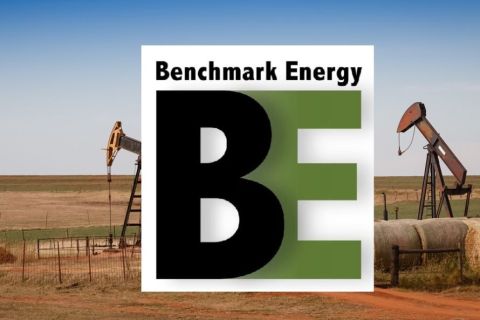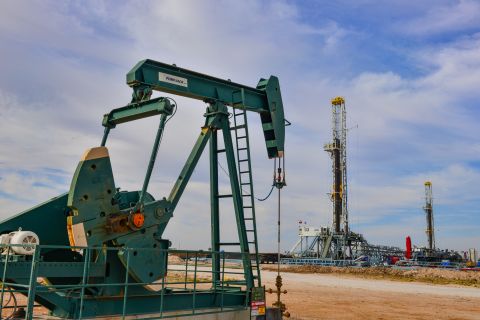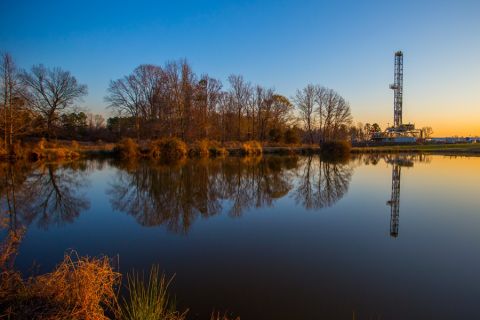Two of the biggest oil producers in Texas are asking the state regulator to consider curtailing the amount of oil companies can pump, in a move to stem a dramatic collapse in prices that has not been taken since the 1970s.
U.S. shale firms this month slashed as much as 50% of planned spending as falling demand due to the coronavirus and a price war between Saudi Arabia and Russia threw the oil market into a free fall. With oil prices down 60% this year, Parsley Energy Inc. and Pioneer Natural Resources Co. want regulators to consider setting limits on how much oil large firms can send to market.
Inaction would lead to oil prices falling to the single digits and "absolutely decimate the American oil and gas industry," said Matt Gallagher, CEO of Parsley. "We're looking for stabilization to keep American workers employed as much as possible."
The demand-supply imbalance makes "this situation critical for the U.S. oil and gas industry," said Tadd Owens, a Pioneer spokesman. "We, along with many of our peer companies, are looking for possible solutions to help balance the global oil market."
The Wall Street Journal first reported on March 19 that several unnamed companies were pushing the idea.
The Texas oil and gas regulator, the Texas Railroad Commission (RRC), imposed production limits on producers in the 1930s to try to prop up prices and later was a model for the creation of OPEC.
On March 20, one of three commissioners at the Texas RRC said Texas should consider production limits for oil companies in an effort to stabilize crashing oil prices.
Oil executives and regulators are reaching out to the Trump administration to float the idea of cutting Texas oil output 10% if the federal government could negotiate with Saudi Arabia and Russia to do the same, said Texas RRC Commissioner Ryan Sitton.
Production limits could reduce price volatility, but by the time regulators act, "we will be in a completely different market environment," said Artem Abramov, head of shale research at Rystad Energy, adding that it would be hard to implement new rules for thousands of producers quickly and might push drilling activity from Texas into neighboring New Mexico.
Production limits would have to "be part of a comprehensive solution," Parsley CEO Gallagher said, adding that tariffs on additional new oil barrels arriving in the U.S. could be one idea, or that other states might limit production. Small oil producers would be exempt, Gallagher said.
The U.S. will begin purchasing domestically produced crude oil for the Strategic Petroleum Reserve in an attempt to try to prop up domestic producers.
Saudi Arabia has chartered about half a dozen supertankers to ship up to 12 million barrels of crude to the U.S. Gulf Coast, as it escalates its fight with Russia for market share.
The coming flood of supply from Saudi Arabia and other producers could result in the largest surplus of crude in history, said global information provider IHS Markit.
Recommended Reading
Benchmark Closes Anadarko Deal, Hunts for More M&A
2024-04-17 - Benchmark Energy II closed a $145 million acquisition of western Anadarko Basin assets—and the company is hunting for more low-decline, mature assets to acquire.
‘Monster’ Gas: Aethon’s 16,000-foot Dive in Haynesville West
2024-04-09 - Aethon Energy’s COO described challenges in the far western Haynesville stepout, while other operators opened their books on the latest in the legacy Haynesville at Hart Energy’s DUG GAS+ Conference and Expo in Shreveport, Louisiana.
Mighty Midland Still Beckons Dealmakers
2024-04-05 - The Midland Basin is the center of U.S. oil drilling activity. But only those with the biggest balance sheets can afford to buy in the basin's core, following a historic consolidation trend.
Mesa III Reloads in Haynesville with Mineral, Royalty Acquisition
2024-04-03 - After Mesa II sold its Haynesville Shale portfolio to Franco-Nevada for $125 million late last year, Mesa Royalties III is jumping back into Louisiana and East Texas, as well as the Permian Basin.




